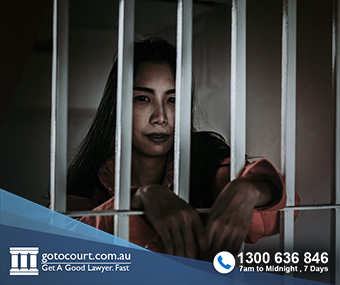Imprisonment in Tasmania
Imprisonment is the most severe penalty that Tasmanian courts can impose. Tasmania has four prisons, being Risdon Prison Complex, Mary Hutchinson Women’s Prison, Ron Barwick Minimum Security Prison and the Hobart Reception Centre. All of these prisons are publicly operated by the Tasmanian Department of Justice. Tasmania had a prison population of 596 on 30 June 2017.
Tasmania also has a youth detention centre, Ashley Youth Detention Centre, which houses offenders aged between 10 and 18.
Remand
Under the Bail Act 1994, a person charged with an offence and denied bail is remanded in custody until the matter is finalised. A person held on remand is held initially in the police cells and then transferred to a prison after attending court to make a bail application. A person is held on remand until they are either found not guilty and released or sentenced. If a person on remand is sentenced to imprisonment, the date of the sentence may be backdated to take into account the time they have already spent in custody on remand. Prisoners on remand are held in the Hobart Reception Centre, which is a maximum-security prison for men and women. Once prisoners have been sentenced, they receive a security classification of maximum, medium or minimum security.
Sentences of imprisonment
Under the Sentencing Act 1997, offenders may be sentenced to imprisonment for offences that carry a maximum penalty of imprisonment. A term of imprisonment may be wholly or partly suspended, or the offender may be required to serve the sentence in full.
When an offender is sentenced to imprisonment on more than one charge, the sentences may be cumulative or concurrent. When concurrent sentences of imprisonment are imposed, they run at the same time. When the sentences are cumulative, the offender must serve one after another. Whether sentences are ordered to be served concurrently or cumulatively will depend on all the circumstances of the offending.
Suspended sentences
The Tasmanian Sentencing Act allows for a sentence of imprisonment to be suspended in whole or in part. When a sentence is suspended, the offender is allowed to live in the community subject to conditions and does not have to serve the term of imprisonment unless they breach these conditions. If a person on a suspended sentence breaches the condition of that sentence, they may be ordered to serve all or part of the suspended term of imprisonment in prison.
Mandatory imprisonment
Under Tasmanian law, certain criminal offences carry mandatory imprisonment. This means that the sentencing court has no choice but to sentence an offender found guilty of the offence to imprisonment. For example, under Section 16A of the Sentencing Act, a person found guilty of assaulting a police officer, where the officer suffers serious bodily harm, must be sentenced to imprisonment for at least six months unless there are exceptional circumstances.
Magistrates Court sentences
Under Section 13 of the Sentencing Act, the maximum term of imprisonment that a Magistrates Court can impose for an offence is 12 months for a first offence and five years for a second or subsequent offence.
Home detention
Since December 2018, Tasmanian courts have had the option of sentencing offenders to Home Detention Orders. Home Detention Orders require the person to reside at a specified premise and to comply with strict conditions, including electronic monitoring. The Tasmanian government stated that Home Detention would help offenders to get back on track and become law-abiding members of society.
Before a Home Detention Order can be made, a court must obtain a pre-sentence assessment of the offender’s suitability for Home Detention.
Parole
When a court sentences a person to imprisonment for a term other than the term of their natural life, it may set a non-parole period. A non-parole period is the part of the sentence during which the offender will not be considered for parole. When the offender reaches the end of the non-parole period, he or she may apply to the Parole Board to be considered for parole.
When a person applies to be considered for parole, the Parole Board will look at all the circumstances of the offender and their offending as well as their behaviour in prison and any programs or training they have participated in. If parole is granted, the person will be released into the community under the supervision of a probation officer and subject to strict conditions. Whilst on parole, the person is still serving their sentence.
Dangerous criminals
Under Section 19 of the Sentencing Act, a judge may declare an offender to be a dangerous criminal if they have been convicted of a crime involving violence, have at least one prior conviction for a crime involving violence and are over the age of 17 and the court considers that such a declaration is warranted for the protection of the public.
When a person is declared a dangerous criminal they are not eligible for release from prison until that declaration has been lifted. This means that once their custodial sentence has been served, they will remain in prison unless the court discharges the declaration.
As in all Australian states and territories, prisons in Tasmania are overcrowded and have inadequate programs and training courses for the number of prisoners in them. Aboriginal people are grossly over-represented in prison. However, Mary Hutchinson Women’s Prison recently announced the opening of a new mother-baby unit that will allow female prisoners with babies to live in conditions that feel like home and that allow the prisoners to maintain the physical bond with their child.
If you require legal advice or representation in a criminal law matter or in any other legal matter, please contact Go To Court Lawyers.








